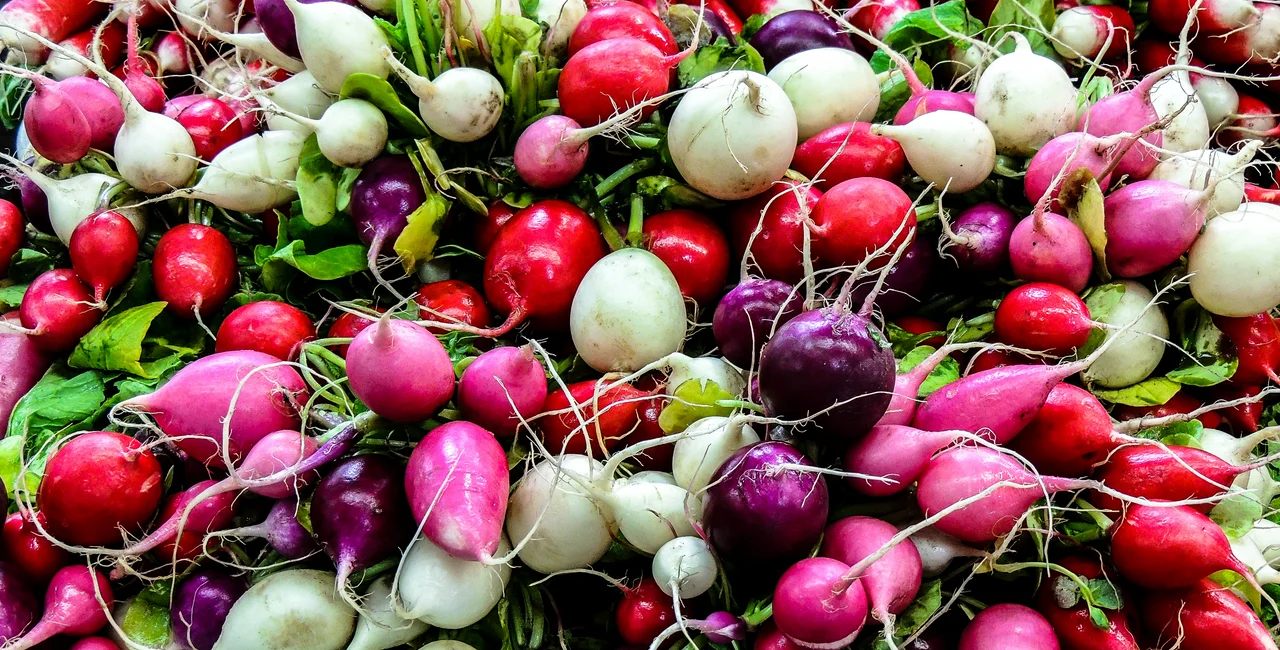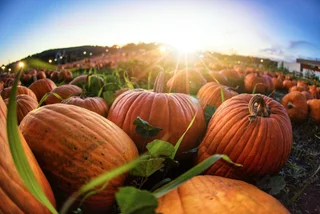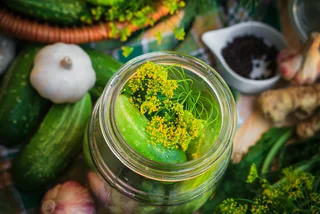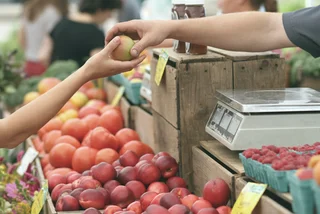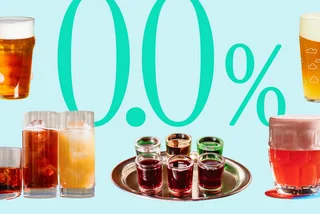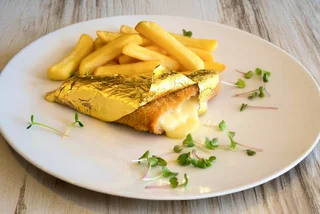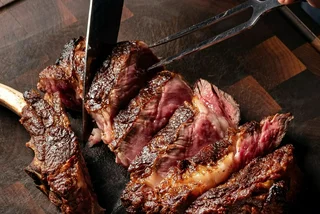More and more Czechs are trying to eat locally grown foods, both to support the local economy and cut down of greenhouse gases and other environmental impacts that come from transporting produce over long distances.
The end of summer means fruits and vegetables are plentiful in Czech farmers markets. Some fruits such as strawberries and blackberries can also be found growing wild or can be picked at farms. At the same time, there has been an increase in organic farming in the Czech Republic, and the EU is promoting organic farming as part of its European Green Deal.
Fruits currently available fresh from local producers on the Czech market include apples, apricots, blackberries, blackcurrants, grapes, pears, plums, and strawberries. The season for cherries is already over.
For vegetables, the list is a bit longer: beetroot, bell and chili peppers, broccoli, cabbage, carrots, cauliflower, celery, chard, cress, cucumber, eggplant (aubergine), garlic, green beans, lettuce, leek, onions, peas, potatoes, pumpkins, radishes, spinach, squash, tomatoes, and zucchini (courgette).
The easiest was to find local produce is by going to farmers markets or large vegetable markets such Hall 22 at the Prague Market (Pražská tržnice) in Holešovice. There are also some producers that sell directly, and they can be found on a map maintained by the Vegetable Union of Bohemia and Moravia (ZUČM). Vendors should list the country of origin next to the produce they sell.
Locally sourced fruits and vegetables are fresher than ones that a been transported long distances, often thousands of kilometers. Often, local produce is being sold in as little as 24 hours from when it is harvested. It contains more nutrients than food that has spent weeks traveling, as nutrients break down over time. Flavor also degrades over time.
“Environmental benefits can also be mentioned: products sold in local food systems are generally produced in an environmentally sustainable way, using less of inputs such as pesticides, synthetic fertilizers, animal feed, water and energy. They require less packaging than in supermarkets and less energy for storage, as they are fresh and seasonal. Less transport also means energy savings and reduced environmental impact,” a European Parliament briefing on food supplies states.
Another plus for local produce is food security. As was seen as the start of the pandemic in 2020, long supply chains can break down unexpectedly. Locally produced foods can make it to market, even when borders are closed.
The EU is currently promoting not only local produce, but organically grown produce as well.
“Agriculture is one of the main drivers of biodiversity loss, and biodiversity loss is a major threat to agriculture. We urgently need to restore balance in our relationship with nature. This is not something farmers face alone, it involves the whole food chain,” European Commission Vice President Frans Timmermans said in March 2021 when a series of initiatives was announced.
“We aim to boost demand for organic farming, help consumers make informed choices, and support European farmers in their transition. The more land we dedicate to organic farming, the better the protection of biodiversity in that land and in surrounding areas,” he added.
The amount of land dedicated to organic farming has been growing in the Czech Republic. In the mid-1990s there were about 200 organic farms in the country. Last year, according to the Ministry of Agriculture, there were 4,661 covering a total of 540,000 hectares. This also includes land used for raising organic meat, which is popular in the Czech Republic.
“Organic farming in the Czech Republic is trying to catch up with the loss from the times of socialism, when it was not possible to farm or sell organically under the Bio and Eko brands,” says Zdeněk Perlinger, chairman of the PRO-BIO Association of Organic Farmers, told daily Hospodářské noviny. Bio and Eko are organic quality labels defined by Czech law.
Farmers markets:
- Hall 22 at Prague Market, Prague 7: Mon.–Fri. 8 am–5 pm; Sat. 8 am–2 pm; Sun. closed
- Malostranské náměstí, Prague 1: Thu. 8 am–6 pm
- Náplavka (Rašínovo nábřeží), Prague 2: Sat. 8 am–2 pm
- Tylovo náměstí, Prague 2: Mon.–Fri. 8 am–6 pm
- Náměstí Jiřího z Poděbrad, Prague 3: Wed.–Fri. 8 am–6 pm, Sat 8 am–2 pm
- Arkády Pankrác, Prague 4: Wed. 8 am– 3 pm
- Anděl, Prague 5: Fri. 8 am–8 pm
- Barrandov at Chaplinovo náměstí, Thu. 8 am–6 pm
- Vítězné náměstí (na Kulaťáku), Prague 6: Sat. 8 am–2 pm
- Řezáčovo náměstí, Prague 7: Sat. 8 am–2 pm (except the last Sat. of each month)
- Ládví, Prague 8: Mon.–Fri., 8 am–6 pm
- Karlínské náměstí, Prague 8: Fri. 8 am–6 pm
- Kubánské náměstí, Prague 10: Thu. 9 am–6 pm; Sat. 9 am–2 pm
- Háje, at U Modré školy 1, Prague 11; Mon. and Wed. 8 am–6 pm
- Sofijské náměstí, Prague 12: Thu. 10 am–5 pm
- Černý Most, Prague 14: Fri. 10 am–7 pm
- Rajská zahrada, Prague 14: Wed. 10 am–7 pm
- Spořilov, Prague 4: Sat. 8 am–12:30 pm












 Reading time: 4 minutes
Reading time: 4 minutes 